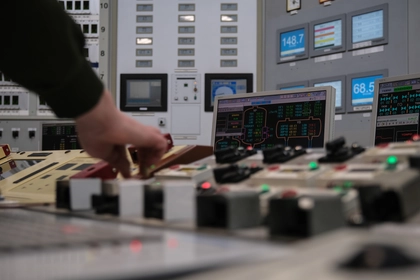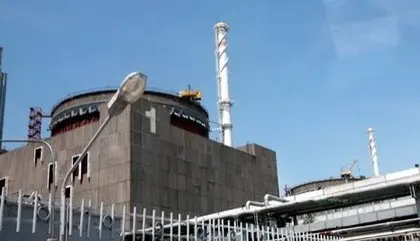The situation is “volatile” at Europe’s largest nuclear power plant, which fell under Russian control in March during Moscow’s invasion of Ukraine, the head of the international nuclear agency said Tuesday.
Located on the Dnipro river in southeastern Ukraine, the Zaporizhzhia nuclear plant has been under Russian control since the early weeks of Moscow’s invasion, though it is still being operated by Ukrainian staff.
JOIN US ON TELEGRAM
Follow our coverage of the war on the @Kyivpost_official.
The International Atomic Energy Agency (IAEA) has been trying to send a mission there.
“The situation is really a volatile one,” IAEA chief Rafael Grossi told a press conference at the UN headquarters in New York, where a conference of the 191 signatories of the Treaty on the Non-Proliferation of Nuclear Weapons is being held.
“Every principle of safety has been violated one way or the other. And we cannot allow that from continuing,” he said.
At the start of the conference Monday, he said that the situation at Zaporizhzhia is growing “more perilous by the day.”
His organization has been trying for weeks to send a team to inspect the plant. Ukraine has so far rejected the efforts, which it says would legitimize Russia’s occupation of the site in the eyes of the international community.
“Going there is a very complex thing, because it requires the understanding and cooperation of a number of actors,” particularly Moscow and Kyiv, as well as the backing of the United Nations since the plant is in a war zone, Grossi explained.

Nuclear Power Plants Save Workers as Russian Bombings Intensify
“I’m trying to put a mission back together to go there as soon as I can.”
On Monday, US Secretary of State Antony Blinken accused Moscow of using the plant as a “military base to fire at Ukrainians, knowing that they can’t and won’t shoot back because they might accidentally strike a nuclear… reactor or highly radioactive waste in storage.”
“That brings the notion of having a human shield to an entirely different and horrific level,” he said.
The Zaporizhzhia region where the plant is located is largely under Russian control, and Moscow-backed separatists have said they are planning to stage a referendum on joining Russia this year.
You can also highlight the text and press Ctrl + Enter






